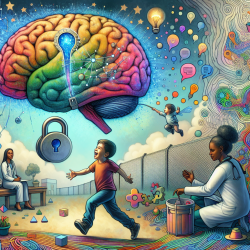Introduction
The COVID-19 pandemic significantly altered the educational landscape, with many schools transitioning to Emergency Remote Education (ERE). A recent study titled "Psychosocial Health of K-12 Students Engaged in Emergency Remote Education and In-Person Schooling: A Cross-Sectional Study" provides critical insights into the psychosocial health of students in these two learning environments. This blog aims to help practitioners improve their skills by implementing the outcomes of this research or encouraging further exploration.
Key Findings
The study, conducted in a Florida K-12 school, evaluated the prevalence and predictors of anxiety, depression, and obsessive-compulsive disorders (OCD) among students. Interestingly, it found no significant difference in the risk levels of these conditions between students engaged in ERE and those attending in-person classes. However, the prevalence of students at risk for anxiety, depression, and OCD was notably high, at 42.1%, 44.8%, and 41.4%, respectively.
Factors Influencing Psychosocial Health
- Student and Parental Factors: Several factors, including child sex, school level, and parental attitudes towards COVID-19, were associated with students being at risk for these conditions. Notably, participation in sports emerged as a protective factor against all three outcomes.
- Sports Participation: The study found that students participating in sports were significantly less likely to present as at risk for anxiety, depression, and OCD. This aligns with existing literature on the mental health benefits of physical activity and sports.
Implications for Practitioners
Practitioners can leverage these findings to enhance their approach to supporting students' mental health. Here are some actionable strategies:
- Encourage Physical Activity: Promote sports and physical activities as part of the school curriculum or after-school programs to mitigate the risk of anxiety, depression, and OCD among students.
- Parental Engagement: Educate parents on the impact of their attitudes and behaviors on their children's mental health. Encourage a balanced approach to COVID-19 precautions to avoid increasing anxiety levels in children.
- Tailored Interventions: Develop interventions that consider the specific needs of different student demographics, such as age and sex, to effectively address their psychosocial health.
Encouraging Further Research
The study highlights the need for more research to understand the psychosocial impact of ERE on children. Practitioners are encouraged to explore this area further, considering the diverse contexts and populations that may present different challenges and outcomes.
To read the original research paper, please follow this link: Psychosocial Health of K-12 Students Engaged in Emergency Remote Education and In-Person Schooling: A Cross-Sectional Study.










